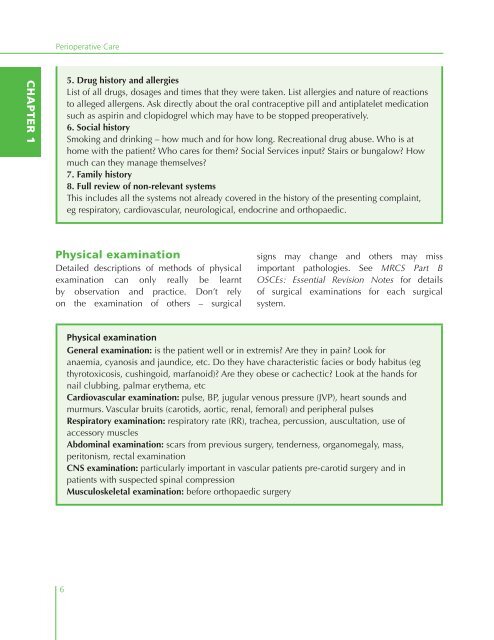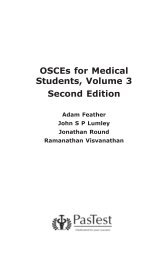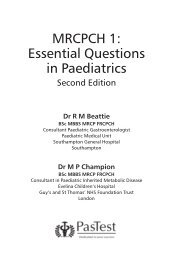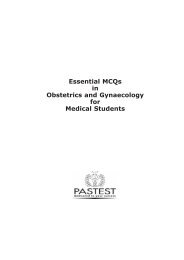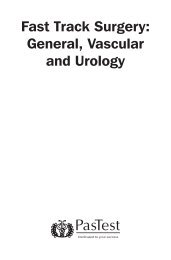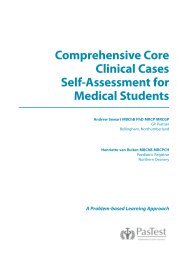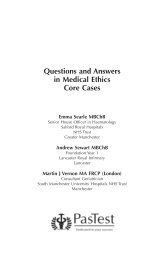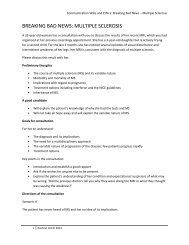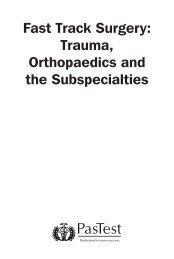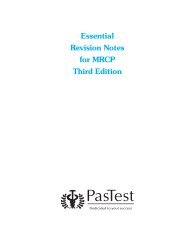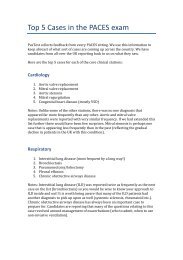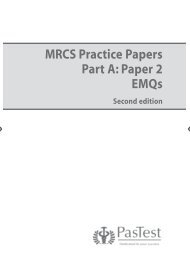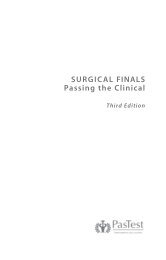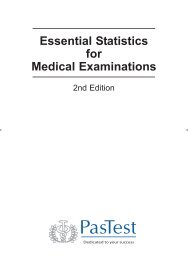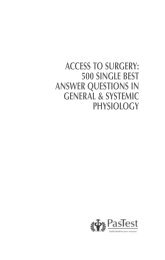MRCS PART A ESSENTIAL REVISION NOTES BOOK 1 - PasTest
MRCS PART A ESSENTIAL REVISION NOTES BOOK 1 - PasTest
MRCS PART A ESSENTIAL REVISION NOTES BOOK 1 - PasTest
- No tags were found...
Create successful ePaper yourself
Turn your PDF publications into a flip-book with our unique Google optimized e-Paper software.
Perioperative CareCHAPTER 15. Drug history and allergiesList of all drugs, dosages and times that they were taken. List allergies and nature of reactionsto alleged allergens. Ask directly about the oral contraceptive pill and antiplatelet medicationsuch as aspirin and clopidogrel which may have to be stopped preoperatively.6. Social historySmoking and drinking – how much and for how long. Recreational drug abuse. Who is athome with the patient? Who cares for them? Social Services input? Stairs or bungalow? Howmuch can they manage themselves?7. Family history8. Full review of non-relevant systemsThis includes all the systems not already covered in the history of the presenting complaint,eg respiratory, cardiovascular, neurological, endocrine and orthopaedic.Physical examinationDetailed descriptions of methods of physicalexamination can only really be learntby observation and practice. Don’t relyon the examination of others – surgicalsigns may change and others may missimportant pathologies. See <strong>MRCS</strong> Part BOSCEs: Essential Revision Notes for detailsof surgical examinations for each surgicalsystem.Physical examinationGeneral examination: is the patient well or in extremis? Are they in pain? Look foranaemia, cyanosis and jaundice, etc. Do they have characteristic facies or body habitus (egthyrotoxicosis, cushingoid, marfanoid)? Are they obese or cachectic? Look at the hands fornail clubbing, palmar erythema, etcCardiovascular examination: pulse, BP, jugular venous pressure (JVP), heart sounds andmurmurs. Vascular bruits (carotids, aortic, renal, femoral) and peripheral pulsesRespiratory examination: respiratory rate (RR), trachea, percussion, auscultation, use ofaccessory musclesAbdominal examination: scars from previous surgery, tenderness, organomegaly, mass,peritonism, rectal examinationCNS examination: particularly important in vascular patients pre-carotid surgery and inpatients with suspected spinal compressionMusculoskeletal examination: before orthopaedic surgery6


